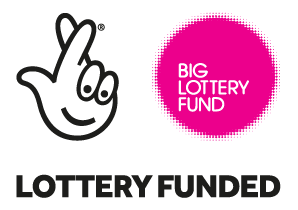
Born in Bradford's Better Start (BiBBS)
Overview
Aims
Born in Bradford’s Better Start (BiBBS) is an innovative experimental birth cohort that will simultaneously evaluate the impact of multiple early life interventions using efficient study designs. Better Start Bradford (BSB) has been allocated £49 million from the Big Lottery Fund to implement 22 interventions to improve outcomes for children aged 0–3 in three deprived and ethnically diverse inner-city areas of Bradford. BiBBS aims to evaluate the effects of these interventions on social and emotional development, communication and language development, and nutrition and obesity by following families from pregnancy into childhood and using linkage to routinely collected data.
Institution
National Health Service (NHS)
Geographic coverage - Nations
England
Geographic coverage - Regions
Bradford
Start date
2016
Catalogue record last updated
09/02/2026
Sample
Sample type
Birth cohort
Sample details
The BiBBS study's sample size was aimed to be 5,000 pregnancies and children born of these pregnancies, with recruitment beginning in January 2016 from the three BSB areas. As of July 2024, recruitment was completed with over 5,600 families recruited. The BSB areas are very ethnically diverse, have higher rates of mortality and morbidity, infant mortality, obesity and poor oral health compared with Bradford district and England. All pregnant women living in BSB areas who are registered to give birth at Bradford Teaching Hospitals NHS Foundation Trust (BTHFT) were eligible for recruitment. The BTHFT is the only maternity unit covering this area. All babies born to women who have consented to participate in the cohort study were be included in the cohort. The partners of the women who have consented to take part were also invited to participate.
A system was developed to flag all women living in the BSB areas on the electronic maternity system. When women attended their first appointment (around 10–12 weeks' gestation), the BSB flag prompted midwives to provide women with information on BSB and the BiBBS cohort study and obtain verbal assent to data sharing with the BiBBS research team. Researchers identified eligible women who provided assent to data sharing, and approached women during the GTT clinic or other appointment to invite them to participate in the cohort.
Sample size at recruitment
Over 5,600 families (July 2024)
Sample size at most recent sweep
Over 5,600 families (Baseline)
Sex
All
Age at recruitment
Birth
Cohort year of birth
2016-2024
Data
Data access
BiBBS data are available through a system of managed open access, contact the study team at borninbradford@bthft.nhs.uk with an expression of interest. More information can be found at borninbradford.nhs.uk/research/how-to-access-data/
Genetic data collected
Linkage to administrative data
Education data Environmental data Health data
Key Papers
Born in Bradford’s Better Start: an experimental birth cohort study to evaluate the impact of early life interventions.doi.org/10.1186/s12889-016-3318-0 Born in Bradford’s Better Start (BiBBS) interventional birth cohort study: Interim cohort profiledoi.org/10.12688/wellcomeopenres.18394.2
Additional information
Website
borninbradford.nhs.uk/what-we-do/cohort-studies/better-start
Related themes
Covid-19 data collection,
Biomarkers,
Diet and nutrition,
Socioeconomic status and deprivation,
Language and literacy,
Loneliness and social isolation,
Migration and immigration,
Neighbourhood,
Physical health assessment,
Work and employment,
Parenting and family,
Social care - receipt,
Social care - need
Mental health measures timeline
Sweep name:
Cohort member age:
Data collection period:
Notes:
Physical health measures:


